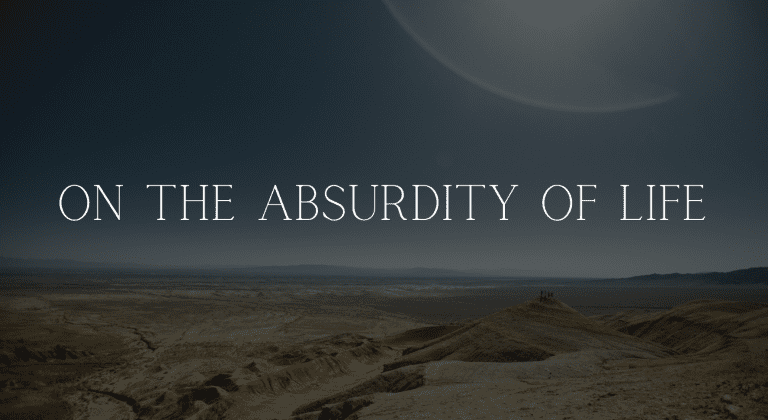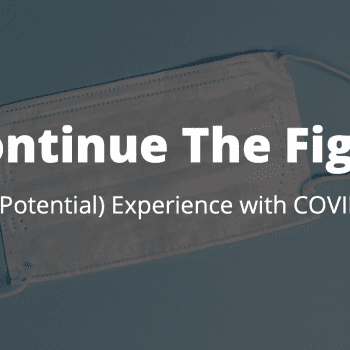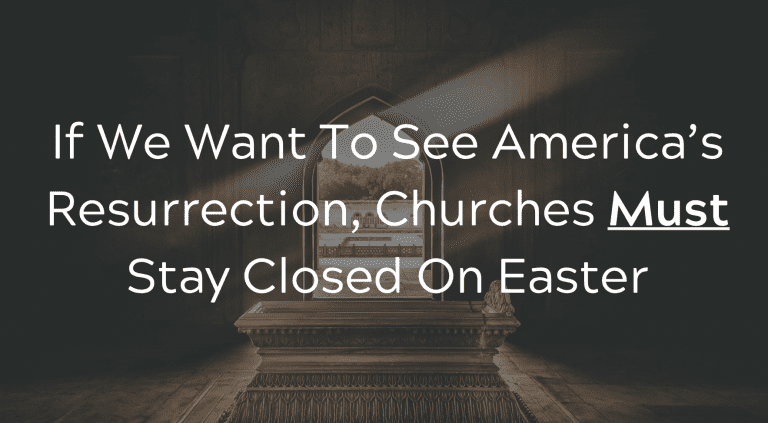Last week, we kicked off this series called “Polarized” with the understanding that Christianity is an inherently political faith- that the message and the example of Jesus, both in his day and in ours, had inherently political implications.
Politics, we learned, is literally defined as caring for the affairs of the city and the people in it, and religion, according to the Bible, is caring for “widows and orphans in their affiliations”, in other words, caring for the people that are most vulnerable in our communities, cities, and world.
As much as it makes so many of us uncomfortable, often for good reason, if we are going to be serious about following Jesus in our modern world, we must carefully look at Jesus and his teachings and ask how they should impact how we engage in our modern society at every level- from electing political leaders to engaging in individual acts of kindness in our day to day lives.
Today, I want to take us on a journey through Jesus’ life to answer two primary questions:
- How did Jesus engage with political leaders and the political system around him?
- What are the key values Jesus and his followers embraced?
From these two questions, it’s my hope that we will be able to walk away with a better of understanding of how we should engage politically and ethically, not just in elections, but in our everyday life.
In Luke 20, we have a familiar scene. Jesus is walking about Jerusalem, the seat of both political and religious power in ancient Israel, teaching openly to the public about this idea he called “the Kingdom of God”.
The Kingdom of God, according to Jesus, is the world as God intends it to be. It effects every level of existence, from how people act in their personal relations, to how the society is ordered politically.
This idea was considered highly dangerous by both the religious and political leaders in Jesus day- those who listened in heard him quite clearly declaring that God intended, through him, to overturn the unjust political system and social ordering, and create a new world order.
As Jesus gained more popularity and more disciples, the powers of his day began to get increasingly nervous- would he cause an uprising? Would he seek to overthrow the governor and the Sanhedrin?
It is in the context of this tension that we find Jesus in our Scripture Passage this morning. This is what is written:
“So [the chief priests]” who are politically appointed by Caesars governor, by the way, “watched him and sent spies to trap him by what he said, so as to hand him over to the jurisdiction and the authority of the governor.”
Do you see what’s happening here?
In the ancient world, just as in our world, religious powers had mingled with political power, and the religious leaders had become tools of the State. In this particular arrangement, the Jewish leaders we free to practice their religion in Israel as they saw fit, as long as they continued to honor Caesar through acts of exaltation, paying taxes, and submitting to his governors.
This deal sounded good to the religious leaders- they were granted a level of political power over their people, and the governor treated them with wealth and status so long as they kept the peace through ensuring their people did what Caesar desired.
But as is often the case, when greed and power is motivation, the deal that is cut is usually really good for those at the top, but pretty terrible for the people at the bottom.
The Jewish people worshipped only one God, and they believed that God was the King and Ruler over all. They were not to pledge their allegiance to anyone other than God, this was written into their commandments.
They were especially hesitant to obey and pledge allegiance to a ruler that was currently unjustly occupying their land, that had oppressed their people for centuries.
The people were distrustful of their religious leaders, and rightfully so. In the first century, uprisings were common. People were ready to rise up and topple the Roman Empires grip on their lives, their land, and their religion. Anytime a person rose up claiming they had a vision to overturn the empire and the anointing of God, folks would follow them.
After all, this is what God had promised them. A Messiah, who was a divinely appointed political leader who was to liberate the Jewish people and bring justice to the four corners of the earth.
People were desperate for a messiah to come and save them- and many did come, claiming this divine title, but were crushed time and time again by the Roman Empire.
So, when Jesus comes on the scene, the religious leaders are very aware of what he is trying to do. In their mind, he’s just another one of the revolutionaries and would-be Messiahs who they simply need to wait for to cross a legal boundary- namely speak directly against Caesar or declare an uprising- and they will deliver him over to be executed.
By the time our passage in Luke 20 happens, the religious leaders had a good reason to believe an uprising by Jesus was imminent. Just a few days earlier, one chapter previous, Jesus rode into the city on a donkey, with people waving palm branches and declaring him to be a king.
This seems like a very clear action of someone who is about to try to overturn the government and set themselves up as the new ruler, does it not?
So, the religious leaders are watching Jesus closely. Our passage begins by telling us they sent spies to listen, to ask him hard questions, and to try to get him to announce his anti-imperial resistance so they could arrest him.
The passage continues:
“So, they asked, “Teacher, we know that you are right in what you say and teach, and you show deference to no one, but teach the way of God in accordance with truth. Is it lawful to pay taxes to the emporer or not?”
These are sneaky suns-of-guns, aren’t they?
It was the common Jewish teaching, as I’ve already said, to only “pay deference to God” and not to any human being. This was seen as generally acceptable by the Roman Empire, as long as folks continued to “pay deference” literally, through taxes.
When the spies ask Jesus this question, they are really hoping for him to say something like “No- we shouldn’t pay taxes to Caesar, for he is not the true King, I am.”
Those words would be a death sentence. They would be treason.
And for our purposes, I want to point out the question under the question here. What Jesus is being asked is “Should his followers participate and respect government?”- even governments that may not reflect their values.
With that lens, let’s hear Jesus’ response. The text continues:
“But Jesus perceived their craftiness and said them: “Show me a denarius (which is a typical Roman Coin). Whose head and title does it bear?” They said, “The emperor’s.” He said to them, “Then give to the emperor the things that are the emperors, and give to God the things that are God’s.” And they were not able in the presence of the people to trap him by what he said; and being amazed by his answer, they became silent.”
The way Jesus answers here are simply brilliant, and outlines a general principle for how Jesus’ followers should engage the political system.
Remember, Jesus was perceived to be a Messianic figure by many of his followers- they expected him to come and topple the empire and establish a new one.
Indeed, Jesus was a Messianic figure, but the way he desired to establish a new empire was entirely different from what his people wanted and expected. The Kingdom that Jesus proclaimed didn’t come from the top down- it wasn’t about making Jesus the new emperor in literal, immediate sense- but it began first within individuals, then moved towards communities, then to society, and eventually to the whole world.
The way Jesus sought to transform the world was through transforming individual lives and empowering those lives to go and restructure their communities, and then those communities could restructure cities, and cities could restructure nations, and nations could restructure the world in alignment with the vision of the Kingdom of God.
In this passage, Jesus brilliantly shows how his vision of societal transformation is both more powerful than political leaders could ever understand, but also worked well within political systems:
The question is whether they should pay taxes to Caesar. These are likely Jewish people asking a Jewish Rabbi who knows that the only honor and worship belongs to God, whether they should keep paying taxes to a political leader who sees himself as a god.
Jesus has them take out a coin, and he asks whose head and whose name is on it. On every piece of currency, Caesars face was affixed with the phrase “Caesar is Lord”.
Everyone knew this. It was an effective piece of political propaganda- everyone used these coins every day to buy and sell and live a normal life in the city.
The spies answer that it is Caesars name and Caesars face on the coin- of course.
And Jesus responds: “The give to Caesar the things that belong to him. But also give to God that which belongs to him.”
This is a trick statement.
Jesus says, these mere coins, even as important as they may be in their society, are things made by the empire. They are temporary, just like the empire is. So, as long as the empire stands, in order to live a normal life, give to the empire the things that belong to it.
Play the game. Mere coins don’t offend God.
But as you play the game of live under the empire, remember also to give to God what is due to God.
And what is due to God?
Everything.
Do you see what he did there? He said- “Sure, give the coins that Caesar made back to Caesar. Respect the rules and the system that we live in. But then live your life with your deepest allegiance and affections postured towards God. Give your deepest honor to God alone. Live your life according to God’s laws and God’s principles.”
Jesus says this because he knows two things: The empire could never stop individuals and communities giving their lives in worship to God, for there was no way for them to see the posture of the heart of the people who live in reverence to God.
The second thing is that Jesus knew when people engaged in the seemingly harmless acts of justice, mercy, and charity that God calls them to, the society will necessarily be transformed.
Time and time again Jesus teaches, along with all of the Prophets of the Hebrew Bible, that acts of justice and charity are meant to be done regularly and quietly. They are meant to be done humbly. Not so others can see and give you praise for these actions. But so that God alone can see and extend the reach of God’s Kingdom through you.
To translate this into principles in our own day- Jesus says to participate and respect the political system- and I think we can also say that if the world Jesus was living in was democratic, he’d so “vote for the candidates that best reflect not your own self-interest, but the principles and values of God.” Engage in the human systems of governance, as imperfect as they are.
Jesus wanted his disciples to be a part of society. In the world, not of the world, as John later writes. We’re not called to silo ourselves in little boroughs where we try to live an alternative existence- no, we’re called to live the values of the Kingdom in the midst of governments and societies that fall woefully short of God’s heart.
This is literally what it means to be “salt and light”- how can we share the light of God’s love; how can we flavor and preserve our society if we’re not engaged in it?
To be effective disciples of Jesus, we’re called to engage in our society and in culture. This also means, clearly from today’s text, engaging in the political systems and structures.
One other caveat on this point- this doesn’t mean that we blindly engage with things the government does that is unjust or against the values of the Kingdom of God. Part of the reason that Jesus is on the radar of the religious and political leaders of his day is precisely because he speaks clearly and boldly, calling out injustice and lies.
The Jewish tradition is chock full of prophets who literally stand up and speak powerfully against politicians by name as an act of God. They literally name political leaders, name their sin, and call them to repentance or else face “God’s judgement” which literally means the consequences of their actions.
Jesus is a faithful teacher in this tradition. When Caesar or the Governor or Religious Leaders do something wrong, he is not afraid to name them and call them to account.
This, then, is also our responsibility as Christians. If we are to be prophetic agents of transformation in our world today, we must be willing to speak against leaders who act unjustly as an act of faith.
As another side note here, I want to have a quick frank discussion. Sometimes, from this pulpit, I and others have named particularly our current President and called out blatant sins he has committed. In our hyper polarized culture, it’s easy to see this action as a partisan or divisive. It’s easy to feel uncomfortable, especially for those in our midst who may align politically with the President.
I want you to hear me clearly: This has nothing to do with Democrat or Republican. You can be a Republican and still clearly stand against immorality by the President, and in fact, most Republicans in our nation do. You can also be a Democrat who condemns immorality by the President and still respect Republicans political positions as valid in our country.
But the tradition that the Christian faith comes from is a prophetic tradition – it’s one that at its very core is about those committed to following the values of God speaking those values boldly in the public square because they realize that those values are for the benefit of everyone, not just themselves. It’s also a tradition that demands that all of us use our voices to speak truth to power- especially in the religious context.
Have you heard of the story in the Hebrew Bible of Radshack, Meeshack, and Abednigo? They confronted the King in the name of God and were thrown into a furnace? Have you heard of heard of how the early Apostles were all rounded up and publicly executed for speaking directly against the empire?
This is our tradition. To speak truth to power, to work for a just and equal world especially for the oppressed and marginalized, no matter what the cost is to us.
So, when any leader, regardless of their party or beliefs, acts in a way that represents our country as immoral, it is the job of all faithful followers of Christ to speak up with our voices, with our feet, and yes, even with our votes.
This may make some of us uncomfortable- but I cannot see any way to be a faithful follower of Jesus that does not entail acts of resistance and truth-telling. They are inextricably linked.
So, the first thing Jesus teaches us is to engage in the political system- both adhering and respecting it, and also speaking truth and demanding change when injustice is enshrined in power or law.
The second point, Jesus makes is for us to remember that true transformation of the world really does begin with us as individuals.
As cheesy as that may sound, it is not just a cliché. When we render ourselves to God, when we work to allow the Kingdom of God to begin in our own hearts and lives first before we demand that it manifests in others, we become more effective channels of transformation.
Canadian Psychotherapist and Philosopher Jordan Peterson says this so succinctly. He says:
“In the play, “The Cocktail Party” by T.S. Elliot, one of the characters is having a very hard time. She speaks of her profound unhappiness to her psychiatrist. She tells him that she hopes her profound suffering is all her own fault. Taken aback, the psychiatrist asks “Why?”. She responds by saying, “If it’s my fault, I can do something about it.” If it’s in the nature of the world, however, she’s doomed. She can’t change anything else. But she can change herself… Most of us have a chance to make our lives better by starting small. Asking if we have set our lives in order. If the answer is “No”, simply stop doing what we know is wrong. What are you doing that’s wrong from your own perspective, and what can you do that’s right, right now? If you do this, your life will improve. After months of efforts, your mind will clear and you’ll begin to see right and wrong more clearly. You will still suffer, that’s the price of being alive, but you’ll be able to overcome that suffering with nobility. For the proper way to fix the world isn’t to fix the world, but to fix yourself. You’ll do no one any harm by doing so, and in that manner, at least, you’ll make the world a better place.”
If we begin by reigning in our own desires, cutting out sin and excess in our own lives, we become more whole, healthier, and more able to do bigger acts of transformative justice in the world around us.
When we take time to look at the log in our own eye, as Jesus says, then we’re better able to later help our neighbor remove the speck in their eye once we can see clearly ourselves.
If we’re going to be effective agents of change in our society, we must first begin by submitting our own hearts and our own minds to God- to becoming the healthy and whole people that God desires us to be.
Now, this isn’t a neat process- one must sequentially come before the other- but rather, as you’re working to conform your inner life to Christ, you will naturally also be propelled to do justice and seek healing in the world around you. These things happen simultaneously.
But so often, especially in this day, we jump right into the fray of activism and justice without first dealing with our own baggage, pain, and hurt. Without first making sure we are healthy and taken care of.
This results in us hurting other people needlessly and being hurt by others. It results in more polarization, because were not showing up as our healthiest, best selves, but with all of our sharp and jagged edges hanging out everywhere.
For Christians, it means we act impulsively, not considering if our actions are in alignment with Christ and his path, which hurts our witness for the Gospel and ultimately does more harm than it does good.
In our passage today, Jesus tells us to participate in the political and social systems of our imperfect world, while continuing to render to God what belongs to God- our hearts and lives and world.
What this means is that it is both possible and necessary to engage in the political and social sphere as those who have deep relationships with God and are committed to God’s vision of how the world should be.
So, as we look at our world today, the question we must ask is: How can I engage in the system that is both faithful to the system and also works to bring about the values of the Kingdom?
How can I embody Jesus and his inclusive gospel to society?
And most importantly, what areas of my own life do I need to take time to work on to bring in alignment with Christ and his values?
If we continually ask ourselves these questions, I believe we will be led in a path that powerfully reflects Christ to our society and brings about lasting transformation of our lives and our world.
Faithful citizens. And faithful followers of Jesus.
For this is our call as disciples of Christ.
I want to end today by praying the words of a famous prayer that brings together both of these calls- towards self-improvement and social action- written by one of my favorite and most influential pastors in American history, Rev. Reinhold Niebuhr. It’s called, “The Serenity Prayer”- may these words wash over you:
“God, give us grace to except with serenity
things that cannot be change,
courage to change the things
which should be changed,
and the wisdom to distinguish
one from the other.
Living one day at a time,
Enjoying one moment at a time,
Accepting hardship as the pathway to peace,
Taking, as Jesus did,
This sinful world as it is,
Not as I would have it,
Trusting that you will make all things right,
If I surrender to your will,
So that I may be reasonably happy in this life,
And supremely happy with you forever in the next.
Amen.











